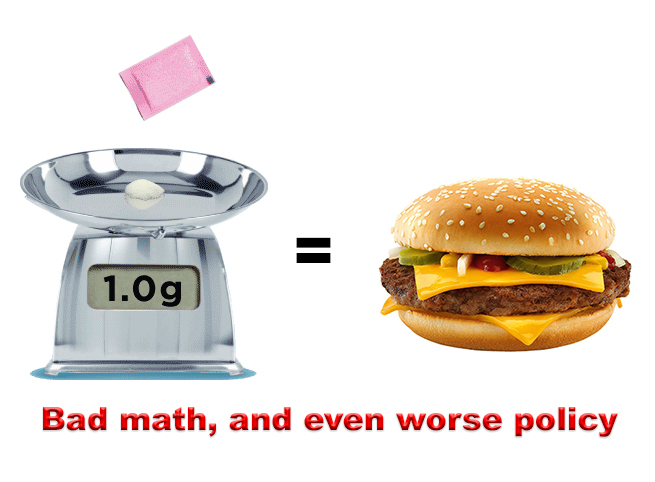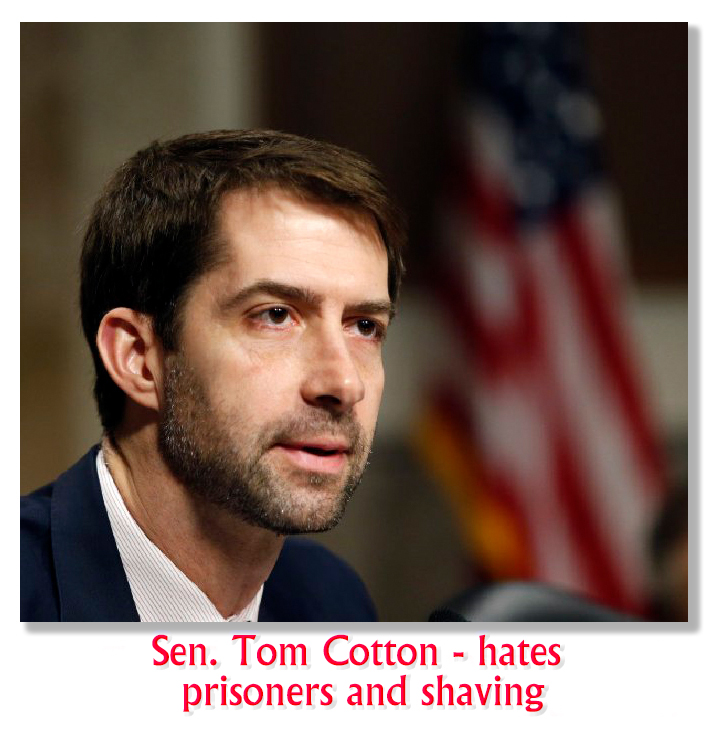We post news and comment on federal criminal justice issues, focused primarily on trial and post-conviction matters, legislative initiatives, and sentencing issues.

EQUAL ACT MAY BE ALL WE GET
Congress was recessed all last week and for part of this one, so no legislative progress was made on the EQUAL Act (S.79), the MORE Act (H.R. 3617), or – for that matter – anything else. But nothing can stop politicians from talking, even during vacations.
 The good news is that all of the talk about EQUAL – which makes crack sentences equal to cocaine powder sentences – suggests it has the support for passage. The only question is when Senate Majority Leader Chuck Schumer (D-NY) will bring it up for a vote. While the Judiciary Committee held a hearing on the crack-cocaine disparity bill last year, it has yet to schedule a markup.
The good news is that all of the talk about EQUAL – which makes crack sentences equal to cocaine powder sentences – suggests it has the support for passage. The only question is when Senate Majority Leader Chuck Schumer (D-NY) will bring it up for a vote. While the Judiciary Committee held a hearing on the crack-cocaine disparity bill last year, it has yet to schedule a markup.
The bad news is everything else. Politico ran an analysis last week reporting that Sens Richard Durbin (D-IL) and Charles Grassley (R-IA), the top Democrat and Republican on the Senate Judiciary Committee, are still talking about a merger of bills such as the First Step Implementation Act (S.1014), the Smarter Sentencing Act (S.1013), and the COVID-19 Safer Detention Act (S. 312) into a single narrow follow-up bill amending the First Step Act, Durbin and Grassley are calling a Second Step Act.
“But both senior senators acknowledge it’s not a glide path forward,” Politico said, “particularly given the GOP messaging on rising crime ahead of the 2022 midterms — a focus that was on full display during Ketanji Brown Jackson’s Supreme Court hearings last month.”
Jackson was blasted last month by a few Republican senators for being too soft on sentencing child sex abuse and drug offenders. “One of the most important consequences of these confirmation hearings is there are district judges across the country who may have ambitions for elevations,” Sen. Ted Cruz (R-TX), who led the charge against Judge Jackson, told CNN. Any judges looking for future promotions “are going to think twice about letting violent criminals go or giving them a slap on the wrist, rather than following the law and imposing serious sentences for those who have committed serious crimes.”
 [Editor’s note: While it is correct that Cruz has been described by one conservative columnist as being “like a serpent covered in Vaseline” who “treats the American people like two-bit suckers in 10-gallon hats,” some maintain that there are good snakes in Texas (but Sen. Cruz is not on their list).]
[Editor’s note: While it is correct that Cruz has been described by one conservative columnist as being “like a serpent covered in Vaseline” who “treats the American people like two-bit suckers in 10-gallon hats,” some maintain that there are good snakes in Texas (but Sen. Cruz is not on their list).]
Far from the only effect, the Jackson hearings have also “dampened the interest in doing what we call the Second Step Act, but we’re still seeing what can be worked out,” Grassley said in a brief interview. He added that if Democrats agree to certain provisions related to law enforcement, “that might make it possible to get something done.”
Meanwhile, Durbin said he’s concerned about a Second Step Act’s prospects for passage, ‘particularly given Republican accusations during Jackson’s confirmation hearings that the justice-in-waiting was soft on crime. The Judiciary chair ranked criminal justice as high on his list of priorities, though he said legislation addressing crime and law enforcement “may be just as challenging as immigration” — a famously tough area of bipartisan compromise on Capitol Hill.
Durbin and Grassley both think a Second Step Act is needed to implement sentencing changes in the First Step law by making them retroactive, midterms are coming up in a little more than 6 months and “campaign-season politics surrounding criminal justice reform threaten broader GOP support. While some lonely voices are calling for passage of such a bill, with Democrats in control of the White House and both houses of Congress, expect a cacophony of Republicans claims that Democrats are to blame for rising crime rates. That should make sentencing changes that much harder, Politico said.
Senate aides on both sides of the aisle warn that EQUAL could still face a challenging path to final passage, including a potentially arduous debate over amendments. Republicans who oppose the bill would almost certainly want to force vulnerable Senate Democrats to take tough amendment votes amid reports of rising violent crime in major cities and the approaching November election. Even Grassley, who is not a co-sponsor but is unapologetically pro-reform, has outlined concerns about whether EQUAL could garner enough Republican support in the Senate to pass.
 So the climate for criminal justice reform is getting ugly. Once, only Sen Tom Cotton (R-Ark) (who calls First Step Trump’s biggest mistake) demanded longer sentences. Last week, mainstream Newsweek magazine ran an opinion piece claiming that “America, in the year 2022, does not suffer from an over-incarceration problem. On the contrary, we suffer from an under-incarceration problem.” The column called on Congress to end “the jailbreak of slashed sentences and the broader civilizational suicide of the ‘criminal justice reform’.”
So the climate for criminal justice reform is getting ugly. Once, only Sen Tom Cotton (R-Ark) (who calls First Step Trump’s biggest mistake) demanded longer sentences. Last week, mainstream Newsweek magazine ran an opinion piece claiming that “America, in the year 2022, does not suffer from an over-incarceration problem. On the contrary, we suffer from an under-incarceration problem.” The column called on Congress to end “the jailbreak of slashed sentences and the broader civilizational suicide of the ‘criminal justice reform’.”
Politico, Criminal justice reform faces political buzzsaw as GOP hones its midterm message (April 14, 2022)
Politico, What’s next for criminal justice reform? (April 14, 2022)
CNN, Ambitious trial judges could be wary after GOP attacks on Judge Jackson’s sentencing record (April 11, 2022)
Wichita Eagle, Former U.S. attorney tells how criminal justice could be more just (April 12, 2022)
EQUAL Act (S.79)
First Step Implementation Act (S.1014)
Smarter Sentencing Act (S.1013)
COVID-19 Safer Detention Act (S. 312)
MORE Act, (H.R.3617)
– Thomas L. Root

